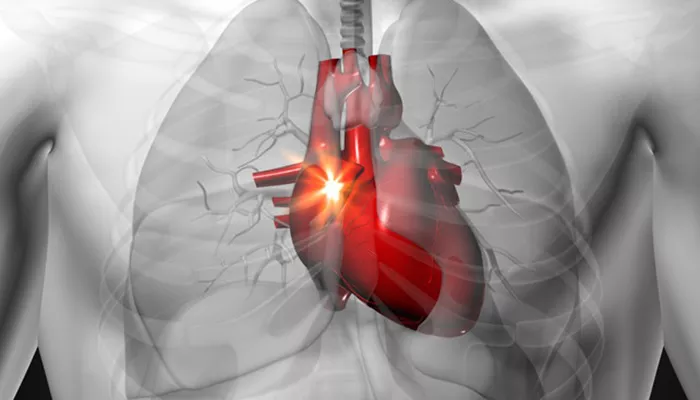Experiencing chest flutters after eating can be unsettling. These sensations, often described as a fluttering or racing heartbeat, may occur for various reasons. Understanding the potential causes can help individuals identify when to seek medical attention and when to manage their symptoms at home. This article will explore the common factors that may lead to chest flutters after meals.
What Causes Fluttering in Chest After Eating?
1. Digestive Process and the Autonomic Nervous System
When you eat, your body activates the digestive system. This process involves the autonomic nervous system (ANS), which controls involuntary bodily functions, including heart rate and digestion. After eating, blood flow increases to the stomach and intestines to aid digestion. This diversion of blood can sometimes cause a temporary decrease in blood flow to other areas, including the heart, which may trigger palpitations or fluttering sensations in the chest.
How the ANS Affects Heart Rate
The ANS has two main branches: the sympathetic and parasympathetic systems. The sympathetic system prepares the body for “fight or flight” responses, while the parasympathetic system promotes “rest and digest” functions. After eating, the parasympathetic system takes over, which may slow the heart rate or cause irregular heartbeats in some individuals.
2. Food Choices and Sensitivities
Certain foods can contribute to chest flutters. High-fat, spicy, or sugary foods can lead to discomfort and gastrointestinal distress, which may result in palpitations. Additionally, food sensitivities or intolerances can provoke reactions that affect heart rhythm.
Common Trigger Foods
Caffeine: Found in coffee, tea, and chocolate, caffeine is a stimulant that can increase heart rate and cause fluttering sensations.
Alcohol: Drinking alcohol can lead to dehydration and changes in heart rate.
High-sugar Foods: Consuming large amounts of sugar can lead to fluctuations in blood sugar levels, potentially resulting in palpitations.
Processed Foods: Foods high in sodium or preservatives can affect blood pressure and heart function.
3. Gastroesophageal Reflux Disease (GERD)
GERD is a chronic digestive condition where stomach acid flows back into the esophagus. This reflux can irritate the esophagus and lead to sensations that mimic heart problems. Some individuals may experience chest flutters along with symptoms like heartburn or regurgitation after eating.
see also: What Causes Arrhythmia in A Child?
Why GERD Causes Palpitations
The pressure from acid reflux can stimulate the vagus nerve, which connects the brain to the heart. This stimulation can lead to changes in heart rhythm, causing fluttering sensations.
4. Overeating and Rapid Eating
Eating large meals or consuming food too quickly can overwhelm the digestive system. Overeating increases stomach pressure, which may push against the diaphragm and affect the heart’s position, leading to palpitations.
Effects of Overeating
Increased Pressure: A full stomach can put pressure on the diaphragm, potentially affecting the heart’s rhythm.
Increased Metabolism: Digestion requires energy, which can elevate heart rate temporarily.
5. Anxiety and Stress
Many individuals experience anxiety or stress related to eating, whether due to food choices, health concerns, or social situations.
Stress activates the sympathetic nervous system, which can lead to an increased heart rate and feelings of fluttering.
Managing Anxiety Around Eating
Mindful Eating: Slowing down and focusing on the meal can reduce anxiety and help prevent flutters.
Deep Breathing Exercises: Techniques to calm the mind can also help stabilize heart rate during and after meals.
6. Dehydration and Electrolyte Imbalance
Dehydration can affect heart function and lead to palpitations.
Inadequate hydration or imbalances in electrolytes (like potassium, magnesium, and calcium) can disrupt the heart’s electrical activity.
- Signs of Dehydration
- Dry mouth
- Dizziness
- Fatigue
Maintaining proper hydration and a balanced diet can support heart health.
7. Medication Side Effects
Certain medications may have side effects that include palpitations. If you notice chest flutters after taking medication, consult your doctor. Common medications that may cause this effect include:
Stimulants for attention deficit hyperactivity disorder (ADHD)
Some antidepressants
Certain blood pressure medications
What to Do About Medication-Related Flutters
If you suspect that your medication is causing palpitations, do not stop taking it without consulting your healthcare provider. They may adjust your dosage or switch you to a different medication.
8. Underlying Heart Conditions
In some cases, chest flutters after eating may indicate an underlying heart condition, such as atrial fibrillation or other arrhythmias. If you experience frequent or severe palpitations, it is essential to seek medical advice.
- Symptoms to Watch For
- Persistent fluttering or racing heart
- Dizziness or fainting
- Chest pain or discomfort
Conclusion
Chest flutters after eating can arise from various factors, including the digestive process, food choices, anxiety, and potential underlying health issues.
While occasional flutters may be benign, it is important to pay attention to the frequency and severity of symptoms. If you frequently experience chest flutters after meals, consider consulting a healthcare professional for further evaluation and management.
Related topics:


